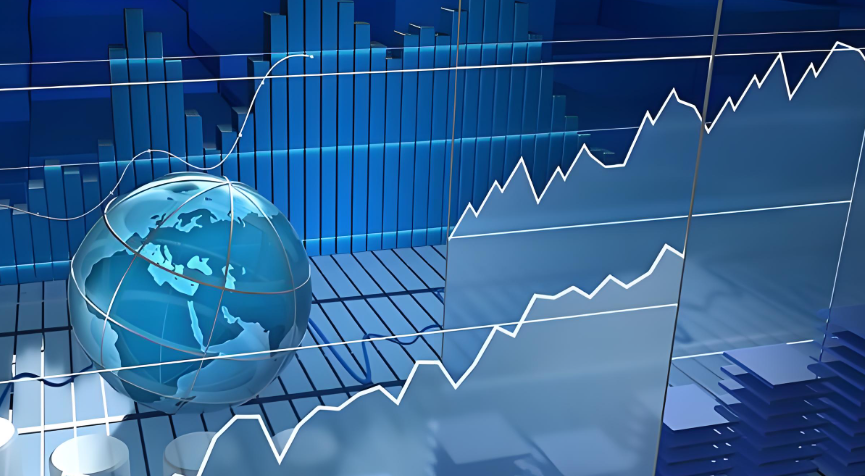The financial landscape has shown remarkable resilience, especially in the U.S. markets, where the major indexes have rebounded despite ongoing tariff threats and economic uncertainties. Recent developments indicate a level of investor confidence that much of the public may not perceive, particularly given the complexity of global trade dynamics and international relations.
In the most recent trading session, the Nasdaq composite surged just under one percent, led by companies like NVIDIA, which experienced a nearly three percent jump after several consecutive days of positive performance, accumulating a gain of over 14 percent in just five days. This resurgence can be attributed to strong market optimism surrounding tech stocks, especially as they continue to leverage advancements in artificial intelligence and machine learning, reflecting broader trends in innovation and digital transformation that are sweeping through various sectors.
Moreover, notable advancements from tech giants like BYD, which unveiled its high-tier intelligent driving system termed "God's Eye," signal a significant leap in automotive technology. As these vehicles become standard at price points exceeding 100,000 yuan, it's clear that vision systems powered by AI are increasingly integral to consumer vehicles, thereby reshaping market expectations and competitive dynamics in the automotive industry.
Simultaneously, global commodities like oil and gold are also seeing fluctuations that demand attention. After two days of consecutive gains, oil prices showed an uptick of over two percent during trading hours. Similarly, gold has witnessed dramatic price movements, achieving almost a two percent rise and setting record highs multiple times in a short span of eight days. Such commodities often reflect global economic patterns, inflation expectations, and investor sentiment, therefore their movements are indicative of larger market trends.

On the Asian front, indices such as the North Shenzhen 50 and Hang Seng Technology Index surged approximately three percent each, showcasing a robust appetite for tech stocks in the region. Additionally, investments surged with capital inflows into Hong Kong stocks soaring to 16.5 billion yuan, primarily benefitting major players like Alibaba, which saw its stock rise nearly six percent. The positive performance of these indices encapsulates the growing confidence amongst investors in Asian markets, particularly amid a broader context of economic recovery following the pandemic.
However, beneath this optimistic surface are underlying convulsions in the American political arena, where an investigation surrounding DOGE's spending has ignited a political storm. This scrutiny highlights the concerns about financial governance and accountability, as lawmakers are driven to ensure that taxpayer dollars are utilized judiciously amidst rising national debts, estimated to fall short of expectations. The implications of such inquiries could have a ripple effect on both economic policies and public trust in government institutions.
Further complications arise from technology giants engaging in strategic maneuvers: OpenAI, for instance, is reportedly on the verge of completing its first custom chip design—an endeavor aimed to enhance its negotiation power within the competitive chip supply market. Meanwhile, Elon Musk has also made headlines with an ambitious bid to acquire OpenAI, offering a staggering $97.4 billion. Musk's proposal, however, was promptly rejected by OpenAI’s CEO Sam Altman, demonstrating the ongoing tussle for power and influence within the tech space that extends beyond mere financial ambition.
Goldman Sachs recently analyzed market flows, indicating a shift in investment strategies, where hedge funds have begun to favor Chinese equities while divesting from South Korean stocks. This trend is particularly pronounced in the tech sector, which has witnessed net purchases hitting a four-year high. Such developments underline the shifting currents in global finance whereby investors are recalibrating their portfolios in response to motivations both from internal economic conditions and international geopolitical relations.
On a more global scale, factors influencing economic sentiments include the Federal Reserve's latest report indicating stable inflation expectations among consumers. As per recent surveys, expected inflation over the next year remains steady at around three percent, while predictions over a five-year horizon have risen slightly. These metrics are critical as they offer insights into consumer confidence and spending habits, which are pivotal drivers of economic growth.
The interplay between technological innovation and investor sentiment is becoming increasingly critical, as evidenced by the rapid advancements in AI and the competing narratives within the sector. Firms focused on developing AI solutions, like NVIDIA and BYD, are positioning themselves at the forefront of an impending technological renaissance, while those failing to adapt may find themselves lagging. This is evident in the changing landscape of AI chip suppliers, as established names reassess their forecasts to account for evolving market demands.
Furthermore, Musk’s announcement regarding the rollout of a fully autonomous taxi service in Texas could push the boundaries of innovation further, catching the attention of regulators and consumers alike. This initiative would mark a significant application of AI technology in everyday life, as it seeks to redefine transportation while navigating existing legislative landscapes that, at times, seem at odds with progressive technological advancements.
In summary, the interplay between market resilience, technological advancements, and political scrutiny paints a complex picture of the current economic environment across the globe. Investors are navigating these turbulent waters with a keen eye on developments in both the tech industry and the ever-evolving regulatory frameworks. As we look to the future, the question remains: how will these dynamics shape not only the trajectory of financial markets but also broader societal trends as we move deeper into this age of technological revolution?
Leave A Reply